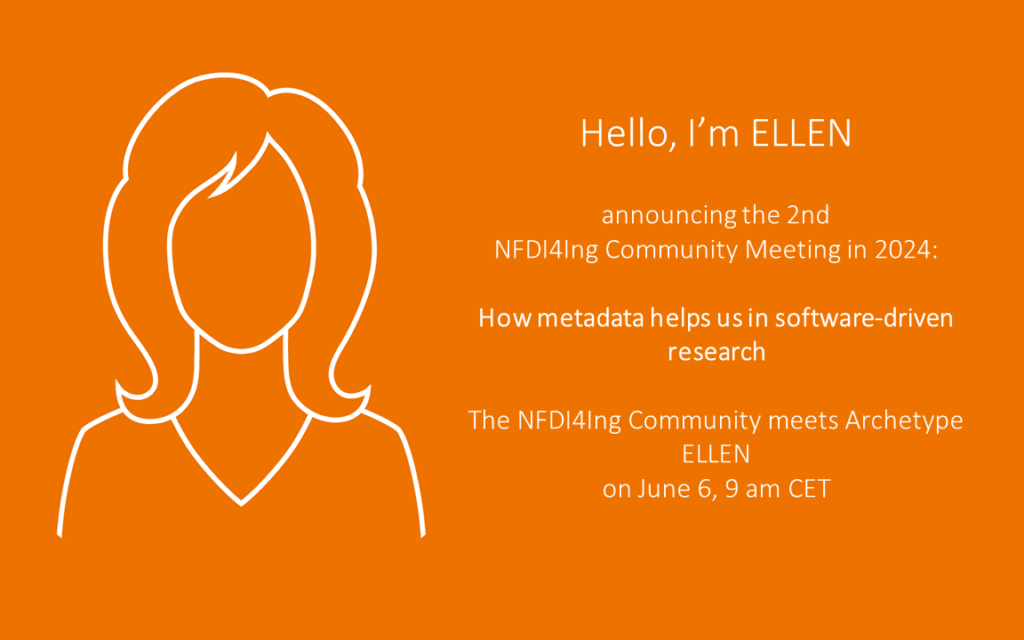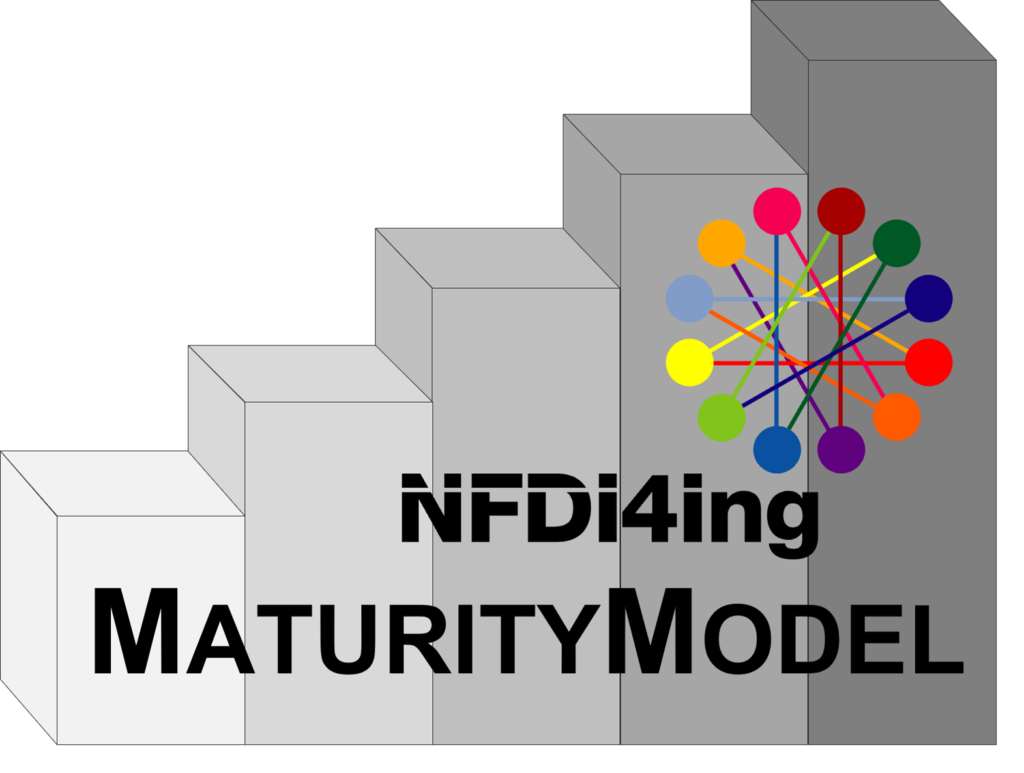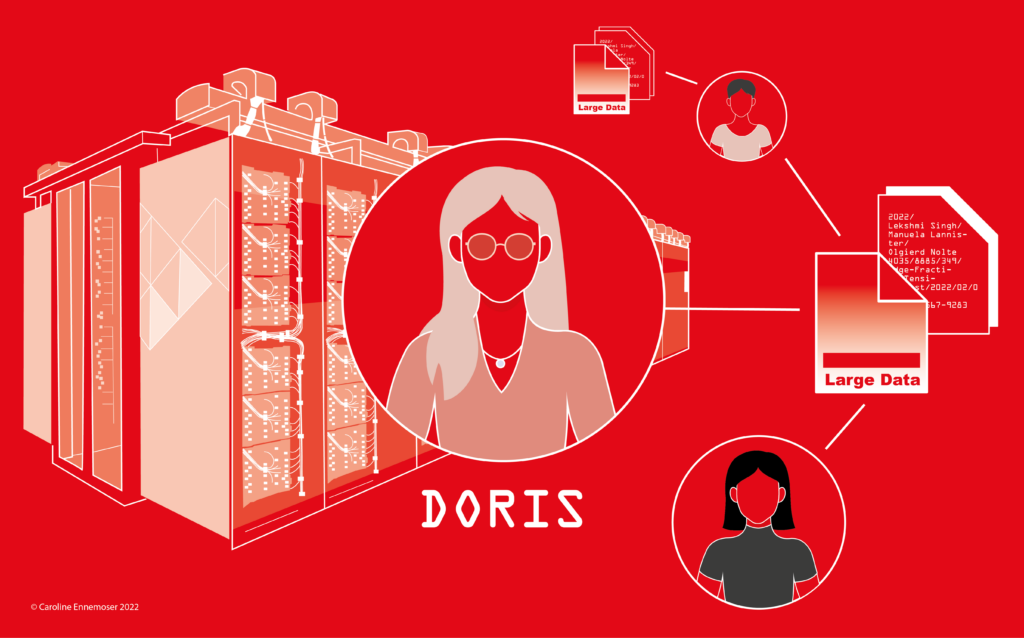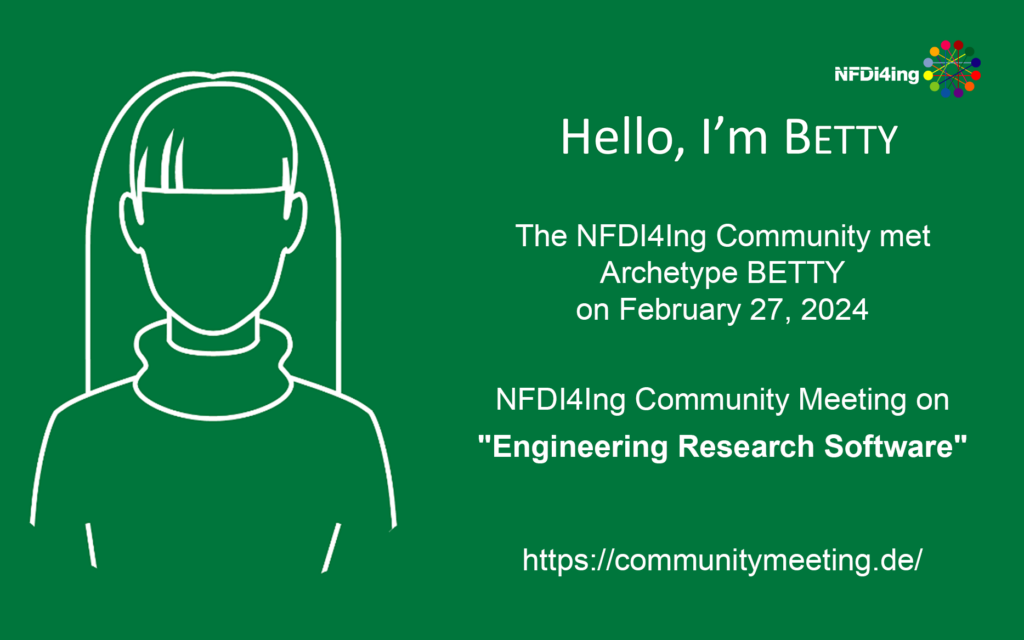nEWS Archive
Archive

The transparent and sustainable scientific exchange of methods, results and findings along the FAIR principles is one of the greatest challenges facing science today. To show how these challenges can be met with innovative technologies, the most recent NFDI4Ing Community
NFDI4Ing provides infrastructure, best practices and templates to make research software and its development more replicable and reproducible while improving the quality of the written code. For the further improvement of the our RDM knowledge base and our JupyterHub prototype,

For the quality assurance of research data management, NFDI4Ing has developed maturity models that enable researchers to assess the implementation of data management in their research projects.
With our benchmark suite we investigated object storages. Based on the results, we compiled usage guidelines to improve transfer speeds and continuously monitor connection quality.

JARVES launched its alpha phase during the 112th Bibliocon in Hamburg. Meanwhile, the underlying research process is published as a paper in ing.grid. Read more on JARVES, your digital data steward!
In his recently published doctoral thesis, Nico Brandt analyses various use cases from the engineering sciences and discusses the development of a suitable research data infrastructure.
In its last meeting on April 12th, the NFDI Consortia Assembly approved three further basic service initiatives NFDI4Ing is heavily involved in: DMP4NFDI, Jupyter4NFDI, KGI4NFDI.

You want to share High-Performance Computing (HPC) data with a colleague who doesn't have access to German HPC facilities? You want to analyze and visualize data without downloading or transferring it? Then please try out the new NFDI4Ing-service MARGE –

The next NFDI4Ing Community Meeting taking place in June will focus on ELLEN and her extensive & heterogeneous data requirements.

Scientists from all engineering communities were invited to learn about innovative tools and services that make it easier to find, use and develop research software and handle the associated data and metadata.
